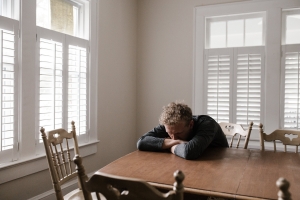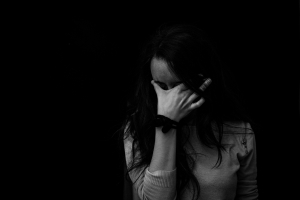How can alcohol consumption impact mental health?
Outubro 27, 2023Alcohol consumption can be harmful to an individual's mental health, especially if they already have some type of mental disorder.
The Shame of Sobriety: Sober Shaming and Its Impact on Mental Health
Novembro 22, 2024The Shame of Sobriety: Sober Shaming and Its Impact on Mental Health
Drinking alcohol is undoubtedly an important part of Western culture, commonly used for celebrating, comforting, socializing, relaxing, and even coping with problems. However, its harmful use is associated with various diseases and health issues, being responsible for the deaths of thousands of people each year.
Although abusive alcohol consumption is still prevalent in Brazil, data shows that the country is following the global trend of a decline in alcohol consumption among young people. This means that more individuals are reconsidering their relationship with alcohol and deciding to reduce or stop drinking. However, for many of them, this decision has not been well received by those around them.
Sober Shaming — the act of shaming or embarrassing someone for deciding not to drink—is a concept that emerged around 2021 through a campaign by the UK-based NGO Alcohol Change UK, and has gained traction in recent years, reinforced by the global trend of reduced alcohol consumption among the younger generation.
Sober shaming can occur subtly when someone asks, "Why aren't you drinking?" or more directly when a person is accused of being "boring" for not drinking, for example. The mere fact of having to justify why one doesn't want to drink is already an example of this social pressure. This can lead people to completely avoid situations involving alcohol or withdraw to prevent negative social consequences (1).
Alcohol is the most commonly used social lubricant. It lowers defenses, makes barriers more porous, and filters more transparent. For this reason, in many cultures, alcohol has become synonymous with fun, and reducing consumption is often associated with boredom and frustration. In this way, sober shaming is part of the persistent belief that it is impossible to have fun without alcohol.
Drinkers may also feel criticized when someone decides to stop or moderate their drinking. A study (2) showed that alcohol drinkers feel judged about their consumption by non-drinkers. As a result, non-drinkers can be seen as a threat during social events.
However, there is a difference in the pressure that men and women face regarding alcohol consumption. Literature findings show that men face more pressure to drink than women, and for women, it is easier to find socially accepted reasons to not drink or to moderate their consumption (3). For men, alcohol consumption is often associated with masculine traits. Drinking large amounts while maintaining self-control is seen as a sign of virility. On the other hand, for women, excessive drinking can be culturally viewed as shameful or immoral, which reduces the pressure to consume.
The stigmatization of sobriety can manifest itself in various ways, such as associating abstinent individuals with negative traits ("boring," "square," "weak") or creating fear of social consequences (for example, not being invited to certain events). In the worst cases, a non-drinker may even be excluded from their social circle (1).
People may not be aware that they are practicing sober shaming, and many do not do it intentionally, seeing it as a joke. However, this behavior can still be very harmful—especially in combination with all the messages that suggest drinking is "normal" and not drinking is not.
By practicing sober shaming, we are telling people that their decision to not drink is not valid, contributing to a culture that isolates and marginalizes those who abstain from alcohol. This practice can have a negative impact on the mental and emotional health of individuals. Instead, we can show respect and support for those who have made this decision. Ending sober shaming can contribute to more people making healthy choices.
References:
- Bayoumy AB, Van de Grift A. Haal alcoholonthouding uit de taboesfeer [Break the taboos on alcohol abstinence: is it time for the #StopSoberShaming initiative in the Netherlands?]. Ned Tijdschr Geneeskd. 2023 May 23;167:D7484. Dutch. PMID: 37257118
- Emslie C, Hunt K, Lyons A. Mais velho e mais sábio? Relatos de homens e mulheres sobre o consumo de álcool no início da meia-idade. Illn de Saúde Social. 2012;34:481-96. doi:10.1111/j.1467-9566.2011.01424.x . Medline
- Paton-Simpson G. Beber socialmente obrigatório: uma análise sociológica das normas que regem os níveis mínimos de consumo. Problema de drogas contemporâneas. 2001;28:133-77. doi:10.1177/009145090102800105.



